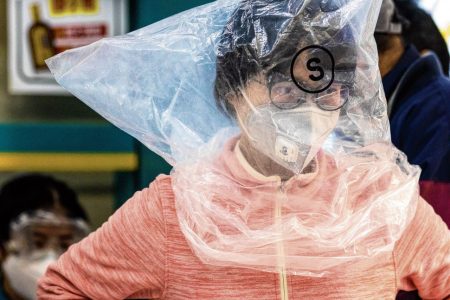Why some people believe vaccinating their children is worse than doing nothing
People’s motivation for not vaccinating their children can be explained by the fact that people feel more responsible for the negative consequences of vaccination than for the consequences of doing nothing.
Originally published in Dutch on NRC.nl
Last week Bill de Blasio, Mayor of New York, declared a public health emergency in parts of Brooklyn due to a measles outbreak: local residents are now legally required to have themselves vaccinated. In the Netherlands too measles are on the increase this year. In the first three months of 2019, ten reports were received about patients with measles, as compared with two reports in previous years. Such increases in diseases considered as having “died out” has led to widespread debate about vaccination. People’s motivation for not vaccinating their children can be explained in part by the unfounded view that there is a link between vaccinations and autism. What has received less attention is that subtle psychological biases (limitations in our thought patterns) may also play a role in the decision not to vaccinate.
Omission bias
One bias that may play an important role in the decision whether or not to vaccinate is omission bias, the tendency to view harmful acts as worse than omitting or neglecting to act, even if both have the same harmful effects and are motivated by the same intention. Parents participating in a research study in the U.S. were required to decide whether or not to vaccinate their child in the following scenario: An outbreak has occurred of a strain of influenza that will prove fatal to 10 children in 10,000. A vaccine is available, but as a side effect it will prove fatal for 5 children in 10,000. Do you vaccinate or not? Although the second option would lead to fewer deaths, the results of the study showed that the majority of parents chose not to have their child vaccinated. The explanation for this lies in omission bias. Due to this bias, in many cases people feel it is worse to actively intervene than to do nothing, because if you actively intervene there is a direct relation between your action and the negative consequences of that action. So if parents actively decide to vaccinate their child they feel more responsible for the five children who die as a result of vaccination than for the ten children who die of external circumstances (as a result of the flu).
Anticipated regret
Another related psychological factor that may predict the view about vaccination is anticipated regret. If parents feel more responsible for active intervening through vaccination than for doing nothing, perhaps they also anticipate more regret in the event of the vaccination having negative consequences. So perhaps fear of experiencing regret might lead parents to choose not to have their child vaccinated. Some researchers even claim that it is anticipated regret rather than omission bias that predicts decisions regarding vaccination, and that this underlies both positive and negative views about vaccination. Some parents are afraid that they will experience regret about the negative consequences of vaccinating their child, but other parents have the same fears about the negative consequences of not vaccinating their child.
Good news and bad news
There are several lessons to be learned from this psychological research, but let me conclude with some good news and some bad news. The bad news is that informing people about the relative risks of vaccinations and the diseases they prevent will probably not be effective in influencing people’s views. Psychological biases play an important role, and consequently people do not always make optimal decisions. The good news is that relatively simple interventions, focused for instance on framing failure to vaccinate as an action rather than inaction, could potentially have positive effects on people’s perception of vaccinations, and thus on the uptake of vaccination programmes.





